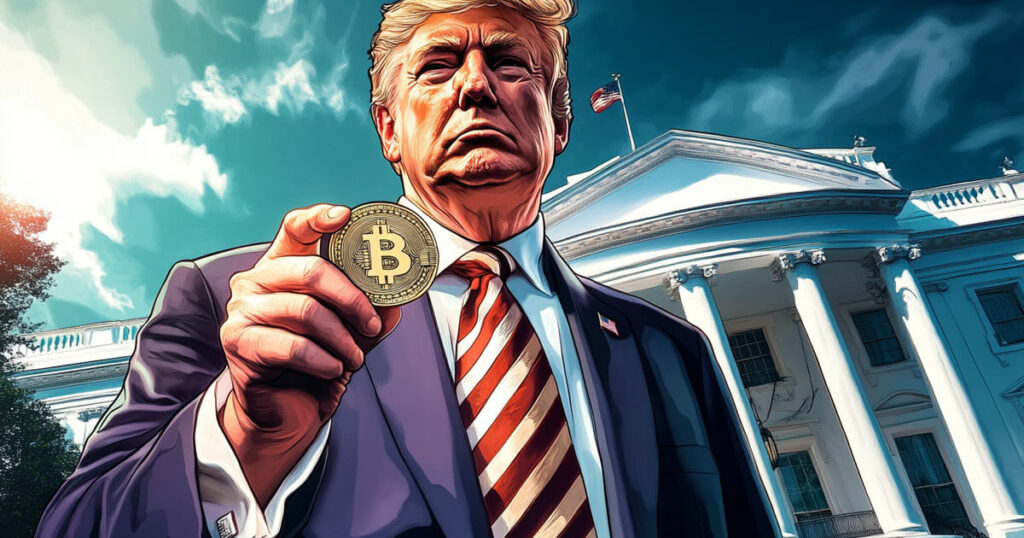Trump, Bitcoin, and the race for tokenized capital markets


The following is a guest article from Jesse Knutson, Head of Operations at Bitfinex Securities.
Donald Trump’s re-election victory and the massive success of the Bitcoin ETFs earlier in the year have been major catalysts behind Bitcoin’s ascent towards $100,000. Gains over the last few weeks have been driven by the anticipation of Trump 2.0 making the US the ‘crypto capital of the world’ and a financial services industry getting its first real taste of ‘number go up’.
While the full details are yet to emerge, the number of Bitcoiners in Trump’s inner circle – including D.O.G.E. head Elon Musk – suggest Trump could come good on his crypto election promises. Fostering a more accommodative approach to banking, self-custody, and digital assets could have massive global knock-on effects. The success of the Bitcoin ETFs did much to destigmatize Bitcoin amongst institutional investors; US government support would likely do the same thing amongst governments.
A pro-Bitcoin administration will almost certainly drive prices higher and result in more countries following suit. In my Bitcoin pitch, I always avoided the end game to people in suits—institutional investors, regulators, and policymakers—but suddenly, hyperbitcoinzation and hash wars look entirely possible.
What does this mean for Bitcoin first movers like El Salvador? Or the Bitcoin curious like Argentina? It’s hard to say. On the one hand, as the largest contributor and shareholder in the IMF, a more accommodative US stance on Bitcoin would likely end the IMF’s opposition to things like El Salvador’s 2021 Bitcoin law. On the other hand, it could steal a lot of thunder from smaller economies, leveraging Bitcoin to attract human and financial capital.
Capital markets, though, are a different game. I’ve often said that the opportunity to monetize Bitcoin-based capital markets is naturally skewed to small to mid-sized economies. Bitfinex Securities is registered and licensed not in New York, London, or even Singapore but in El Salvador and Kazkahstan’s Astana International Financial Center. Two jurisdictions that not only have buy-in from the highest echelons of their respective governments, but maybe even more importantly, are places where financial services account for a very small proportion of GDP. There are fewer moats and less pushback from entrenched players in legacy markets. It’s a good bet. Lots of upside and minimal downside.
The tokenization we have seen in financial hubs and by major financial institutions to date looks to me like token tokenization. Earlier this month, UBS Asset Management launched a USD Money Market Investment Fund built on Ethereum. The fund “seeks to open the door to the world of decentralized finance, reduce barriers and provide access to products and services to a broader range of market participants, bringing them closer together”, but is also only available through authorized distribution partners. This seems like corporate buzzwordery. More smoke and mirrors. Authorized distribution partners sound like the antithesis of decentralized finance.
A number of the big banks have built proprietary tokenization technology. HSBC, for example, has Orion. UBS has Tokenize. Goldman’s has the Goldman Sachs Digital Asset Platform. Most (maybe all) of these solutions limit participation to institutional and/or accredited investors, settle either in fiat or a CBDC, offer no integration with Bitcoin or Tether, and rely on the usual host of conventional capital market participants like transfer agents, custodians, and depositories with no effort at disintermediation. The future of finance looks a lot like the past.
This, I think, is the opportunity for El Salvador and other countries like it: streamline capital markets, disintermediate technologically unnecessary roles, support self-custody and peer-to-peer trading between whitelisted counterparties, allow for broad market participation and encourage links between conventional and digital asset markets through Tether and Bitcoin. This could yield an alternative to conventional capital markets that allows issuers and investors to interact much more directly and is cheaper, faster, and more inclusive.
Wall Street’s approach seems to focus almost exclusively on the efficiencies of tokenized securities while overlooking the opportunity to streamline markets, return more control to investors, or encourage participation in capital markets from a broader range of investors and issuers. I think it’s mostly about firing the back office and improving margins. Regardless of Trump’s Bitcoin strategy, it’s difficult to imagine tokenization in major markets, weighed down by layers of incumbents and vested interests, following the El Salvador model. They seem to want innovation without change.
I think a race between the competing approaches to tokenization will emerge in the coming years, fuelled in part by a more digital-assets-friendly US administration: developed vs. developing economies, open source vs. permissioned chains, inclusion vs. institutional only, Bitcoin and Tether vs. CBDCs and fiat. It’s much too early to say which path will emerge as the dominant approach, but I think there’s a good chance that freer, cheaper, lower friction markets can come out on top.
Mentioned in this article













